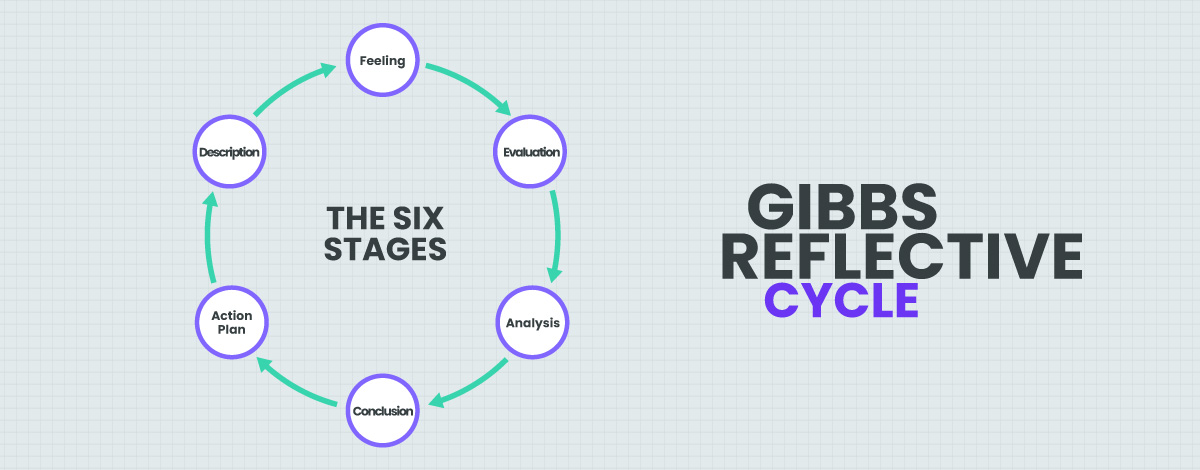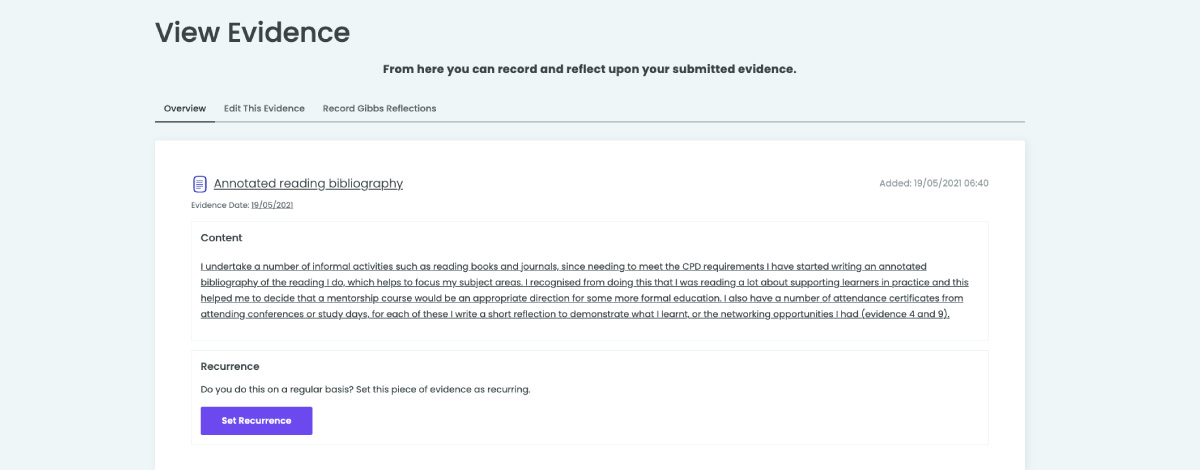How to: Reflect on your learning
08 Jun 2021How to
So you’ve done some CPD and then recorded your evidence. Tick. Now it’s time to write a reflection of your learning.
The need to reflect
You’re no doubt short on time and may have a jumble of ideas in your head about what you want to write. Or maybe no ideas at all.
To make things easier for you, you can use the good ol’ Gibbs Reflective Cycle. You don’t have to structure your reflection in this way, but it might help you to ensure you are delving deep enough and giving HCPC all the information they need, should you be audited.
Not familiar with the tool? Well, to introduce you, Gibbs himself says:
‘It is not sufficient simply to have an experience in order to learn. Without reflecting upon this experience it may quickly be forgotten, or its learning potential lost. It is from the feelings and thoughts emerging from this reflection that generalisations or concepts can be generated and it is generalisations that allow new situations to be tackled effectively.’ (Gibbs, 1988)
This diagram sums up the six stages that the Gibbs Reflective Cycle guides you through to consider your experience.

Working through the sections
Here are some helpful questions to ask yourself as you go through each section:
Description - where you briefly set the scene
- What is the context behind why you completed the learning?
- When and where did it take place?
- What information was covered?
Feelings and thoughts - describe, don’t analyse
- How did your feelings change before and after the learning?
- What thoughts went through your mind when completing the learning?
- If you completed the learning with others, what thoughts and feelings did they express?
Evaluation - the good, bad and ugly (be objective)
- What were the most positive and negative aspects of the learning experience?
- Which part of the learning was most useful to you?
- Was there anything less relevant?
Analysis - explore the points you have raised above and why these occurred
- Why has (or hasn’t) this learning experience been beneficial to you (and others)?
- How did you ensure you succeeded?
- Why did a certain outcome arise?
Conclusion - what you learned and what you could have done differently
- What were the main things you took away from the learning experience?
- Would you do anything differently if in this situation again?
- How have you been able to apply your learning?
Action plan - next steps following the learning
- How do you plan to build on the knowledge and skills you have gained?
- How will I approach relevant situations differently next time?
- What further learning do I plan to undertake in this area?
Finally, remember to include real examples. HCPC wants to see that this learning has positively impacted your service delivery and benefited your service users.
Using this tool with Julia
If you are a Julia user, you will see we have provided an area specifically for Gibbs Reflection Notes on the View My Evidence screen. This features all six key headings.
Once you have completed the reflective exercise, you can take all or part of the content, depending on what is relevant, and pop it into the Reflection section in the Overview tab. This will ensure your reflection is included in your report when you choose to download this.

Consider other reflection tools
As you will no doubt be aware, Gibbs is not the only reflection tool out there. The only way to tell if it works for you is to try it, along with others.
You may find that only some of the headings work for you and, if that is the case, that’s ok - but going through the whole process will definitely help you to think more critically about your learning experience.
If there is another tool you prefer to use, we would love to hear about it, as would others too. So drop us a message via Twitter and let us know!
References
Gibbs, G (1988). Learning by Doing: A guide to teaching and learning methods. Further Education Unit, Oxford Polytechnic: Oxford.
Julia helps you record, reflect, and report on your CPD through our website and app.
It's an easy way for you to stay on top of your CPD. Sign up for a 14 day free today.